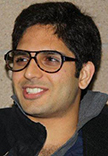Wednesday 5 October 16:30 - 17:00, Red room
Prof. Guevara Noubir (Northeastern University)
Amirali Sanatinia (Northeastern University)
Today, isolated trusted computation and code execution is of paramount importance to protect sensitive information and workflows from other malicious privileged or unprivileged software. Intel Software Guard Extensions (SGX), is a set of security architecture extensions introduced in the Skylake microarchitecture that enables a Trusted Execution Environment (TEE). It provides an 'inverse sandbox', for sensitive programs, and guarantees the integrity and confidentiality of secure computations even from the most privileged malicious software (e.g. OS, Hypervisor).
SGX-capable CPUs only became available in production systems in Q3 2015, however they are not yet fully supported and adopted in systems. Besides the capability in the CPU, the BIOS also needs to provide support for the enclaves, and not many vendors have released the required updates for the system support. This led to many wrong assumptions being made about the capabilities, features, and ultimately dangers of secure enclaves. By having access to resources and publications such as white papers, patents and the actual SGX-capable hardware and software development environment, we are in a privileged position to be able to investigate and demystify SGX.
In this paper, we first review the previous Trusted Execution technologies, such as ARM Trust Zone and Intel TXT, to better understand and appreciate the new innovations of SGX. Then we look at the details of SGX technology, cryptographic primitives and the underlying concepts that power it, namely the sealing, attestation, and the Memory Encryption Engine (MEE). Then we look at the use cases such as trusted and secure code execution on an untrusted cloud platform, and Digital Rights Management (DRM). This is followed by an overview of the software development environment and the available libraries.
Click here for more details about the conference.
 |
Guevara NoubirGuevara Noubir holds a Ph.D. in computer science from EPFL and is currently a professor at Northeastern University. His research focuses on privacy and security. He is a recipient of the National Science Foundation CAREER Award (2005). He led the winning team of the 2013 DARPA Spectrum Cooperative Challenge. Dr Noubir has held visiting research positions at Eurecom, MIT, and UNL. He served as program co-chair of several conferences in his areas of expertise such as the ACM Conference on Security and Privacy in Wireless and Mobile Networks, and IEEE Conference on Communications and Network Security. He serves on the editorial board of the ACM Transaction on Information and Systems Security, and IEEE Transaction on Mobile Computing. |
 |
Amirali SanatiniaAmirali Sanatinia is a Computer Science PhD student at Northeastern advised by Professor Guevara Noubir, and holds a Bachelors degree in CS from St Andrews University. His research focusses on cyber security and privacy, and was covered by venues such as MIT Technology Review and ACM Tech News. He is also the OWASP Boston NEU Student chapter founder and leader. |